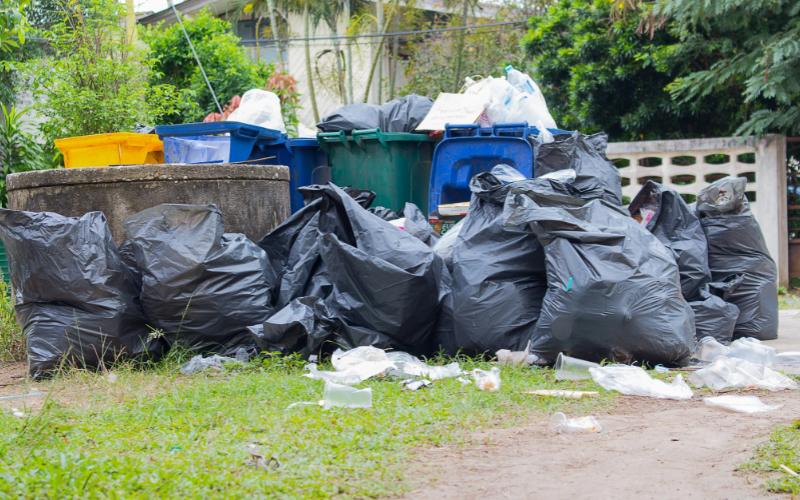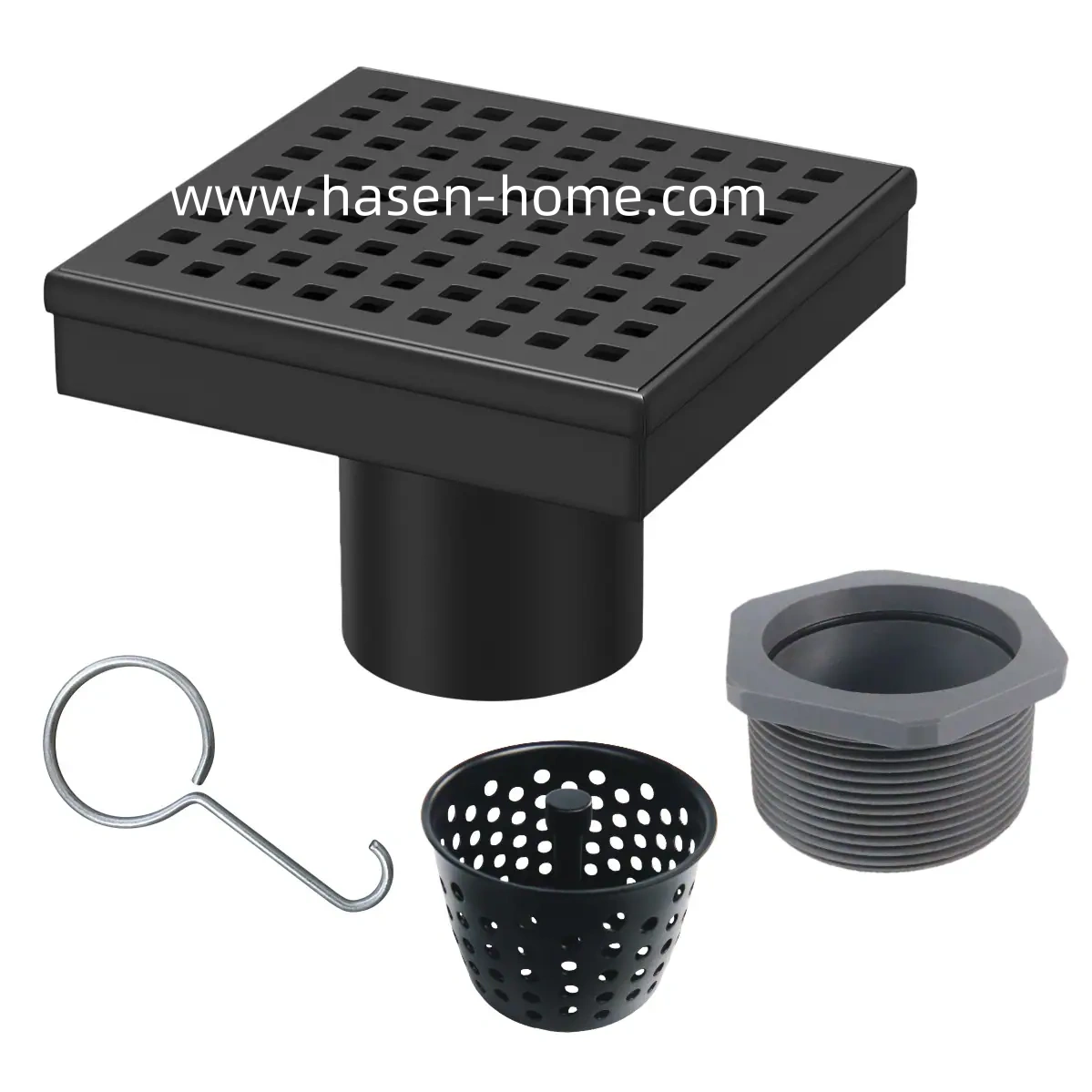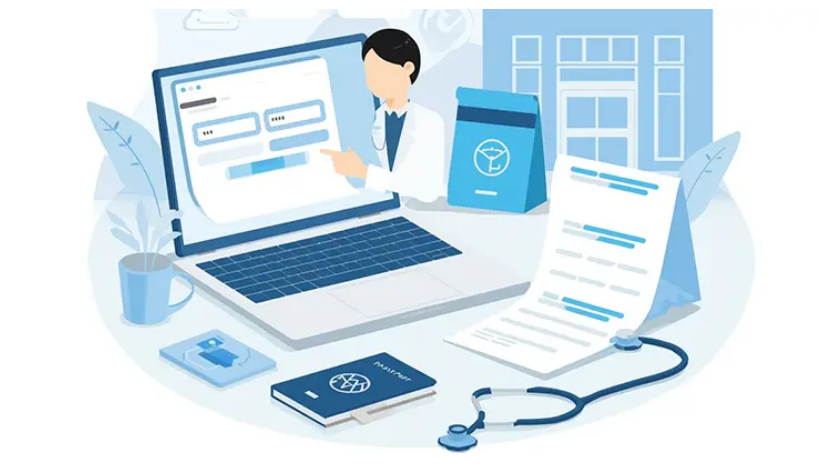what items junk removal companies will not take

When you hire a Junk Removal company, you expect them to haul away almost anything cluttering your home or business. From old furniture and broken appliances to piles of yard waste, these services make cleaning up fast and stress-free.
However, even professional junk haulers like Trash and Dash Junk Removal in Maryland, US, have restrictions. There are certain items they cannot legally or safely take due to health, environmental, or safety concerns.
Understanding what junk removal companies can and cannot handle helps you plan better and avoid extra costs or wasted effort. Let’s go over the full list of items that most junk removal services will not accept—and why.
Why Some Items Are Not Accepted
Before jumping into the list, it helps to understand why these rules exist. Junk removal companies must follow federal, state, and local regulations related to waste disposal. Maryland, like most states, has strict laws governing the handling of hazardous materials, flammable products, medical waste, and electronics.
The main reasons junk removal companies refuse certain items include:
-
Safety Risks – Some items are dangerous to lift, move, or store.
-
Environmental Laws – Many materials need special treatment before disposal.
-
Health Hazards – Items that could cause contamination, infection, or poisoning.
-
Disposal Restrictions – Local landfills may reject hazardous or regulated materials.
-
Licensing Limitations – Junk removal companies are not certified for toxic or medical waste handling.
Understanding these limits keeps you, your home, and your local environment safe.
1. Hazardous Chemicals
Hazardous chemicals are at the top of the “do not take” list for every junk removal service. These substances can leak, catch fire, or produce harmful fumes.
Examples include:
-
Paints, stains, and solvents
-
Pesticides and fertilizers
-
Gasoline, diesel, and motor oil
-
Pool chemicals and chlorine
-
Cleaning supplies with harsh acids or ammonia
If you need to dispose of these safely, contact your local household hazardous waste collection facility. Many Maryland counties host free drop-off events for residents several times a year.
2. Explosives and Ammunition
It’s common sense, but worth mentioning—junk removal teams cannot take explosives, fireworks, or ammunition. Even small items like shotgun shells or flares pose serious risks.
Local fire departments or police stations often have programs to handle and dispose of ammunition safely. Never toss these items into regular trash bins or curbside pickups.
3. Medical and Biological Waste
Medical waste includes anything that has come in contact with blood, body fluids, or infectious materials. This can include used bandages, needles, syringes, or expired medications.
Why they can’t take it:
-
Risk of infection or contamination
-
Strict disposal rules under health laws
-
Need for licensed biohazard handling
If you need to get rid of old medications, many pharmacies and hospitals offer take-back programs. Sharps and needles should go into approved disposal containers before being dropped off at a medical waste facility.
4. Asbestos and Materials Containing It
Older homes in Maryland sometimes contain asbestos in insulation, ceiling tiles, or siding. Asbestos fibers are toxic when inhaled, leading to serious lung diseases.
Trash and Dash Junk Removal and most junk haulers are not licensed to remove asbestos. These materials require professional abatement contractors with specialized safety gear and disposal permits.
If you suspect any asbestos materials in your property, stop all work immediately and contact a certified abatement company.
5. Wet Paint and Other Liquid Waste
Wet paint, stains, and similar liquids cannot be accepted by junk removal services because they can leak during transport and contaminate soil or water sources.
However, dry paint cans—where the paint is fully hardened—are usually fine. To dispose of wet paint safely, you can:
-
Let the paint dry out by removing the lid and letting it harden.
-
Mix it with cat litter or sand to absorb the moisture faster.
-
Take it to a household hazardous waste facility once it’s solidified.
6. Flammable or Corrosive Materials
Items that are highly flammable or corrosive are considered dangerous goods. These include:
-
Propane tanks
-
Aerosol cans (especially if not empty)
-
Gas cylinders
-
Battery acid
-
Paint thinner or lighter fluid
Such materials require special handling that standard junk removal teams cannot perform. Contact a specialized waste service or hazardous waste collection site in your area.
7. Large Industrial Equipment
If you have heavy industrial machinery or large commercial equipment, most residential junk removal companies won’t take it.
Reasons include:
-
Excessive weight and size
-
Need for special transport vehicles
-
Potential presence of oils, coolants, or hazardous materials
For these items, it’s best to contact a commercial scrap service or industrial recycling center.
8. Pressurized Containers
Any container that’s pressurized, like fire extinguishers, propane tanks, or oxygen cylinders, is off-limits. Even empty ones can explode when punctured or exposed to heat.
Fire extinguishers can often be returned to the manufacturer or dropped off at a local fire department for safe disposal.
9. Automotive Fluids and Batteries
Used oil, brake fluid, antifreeze, and car batteries are considered hazardous waste. Junk removal companies can’t handle these because they contain lead, acid, and toxic chemicals.
Luckily, many auto parts stores in Maryland accept these items for recycling or safe disposal. It’s both eco-friendly and compliant with local waste laws.
10. Tires
Tires are another item that junk removal companies typically won’t take. They’re difficult to dispose of because they don’t break down easily and can trap methane gas in landfills.
You can bring used tires to:
-
Tire recycling centers
-
Auto shops
-
County recycling programs
Some facilities even charge a small recycling fee but ensure the tires are repurposed into safe materials like playground surfaces or road rubber.
11. Construction Debris with Hazardous Elements
While most junk removal companies do take general construction waste like wood, drywall, and metal, they’ll refuse materials containing lead paint, treated wood, or insulation with hazardous chemicals.
Maryland has strict disposal rules for these substances due to environmental contamination risks.
If your renovation project includes older materials, check whether they contain lead or other regulated substances before scheduling junk pickup.
12. Electronics with Hazardous Components
Electronics (e-waste) contain heavy metals such as mercury, lead, and cadmium. Some junk removal companies accept small electronics, but larger or older devices may be restricted.
Common restricted e-waste items:
-
CRT televisions and monitors
-
Old computers with mercury components
-
Broken fluorescent bulbs
Many Maryland recycling programs accept e-waste safely. Drop them off at designated centers or donate working devices to nonprofits.
13. Perishable Food Waste
If you’re cleaning out a home or restaurant, most junk haulers will not take perishable food items. Rotting or spoiled food attracts pests and causes odors during transport.
Instead, you can:
-
Use your local compost program for organic waste.
-
Double-bag spoiled food and use municipal garbage collection.
14. Dead Animals or Biological Materials
No junk removal company will handle dead animals or remains. This is considered biohazard waste and must be managed by professionals trained in sanitation and biohazard removal.
If you discover a deceased pet or wild animal on your property, contact animal control or a wildlife removal specialist.
15. Illegal or Stolen Items
It might sound obvious, but junk removal companies will not take weapons, drugs, or stolen property. If they suspect illegal items, they are required to report it to local authorities.
Always ensure the items you’re disposing of are yours to remove.
16. Radioactive or Chemical Lab Materials
If you work in a lab, school, or medical setting, you may come across old chemical reagents, lab waste, or radioactive samples. These cannot be transported by junk removal companies.
They must go through specialized hazardous waste contractors licensed for scientific waste.
What Junk Removal Companies Can Take
While this list may seem long, junk removal companies like Trash and Dash Junk Removal actually handle most everyday clutter, including:
-
Old furniture and mattresses
-
Broken appliances
-
Yard waste and debris
-
Construction materials (non-hazardous)
-
Household junk and clutter
-
Hot tubs, playsets, and sheds (after proper disassembly)
If you’re ever unsure, call ahead and describe the items. Reputable companies will guide you through the process and suggest alternatives for restricted waste.
How to Handle Restricted Items Responsibly
If you have items that Trash and Dash Junk Removal or other companies can’t take, here’s what you can do instead:
1. Contact Local Recycling Centers
Many counties in Maryland have dedicated recycling centers for electronics, batteries, and hazardous chemicals.
2. Use Hazardous Waste Collection Events
Local governments host seasonal drop-off events for paint, oil, pesticides, and similar items.
3. Donate When Possible
If an item is still functional but you just don’t need it, consider donating to local charities or shelters.
4. Partner with Specialty Disposal Services
Some materials, like asbestos or industrial waste, require specialized removal services.
5. Follow Proper Storage Before Disposal
Keep hazardous materials sealed in their original containers and label them clearly until you can drop them off safely.
Why Choosing a Responsible Junk Removal Company Matters
Hiring a responsible junk removal service ensures that your unwanted items are handled ethically and legally. Trash and Dash Junk Removal in Maryland, US, follows all state and federal waste regulations, protecting both customers and the environment.
They focus on eco-friendly disposal, recycling whenever possible, and donating reusable items to minimize landfill waste. This approach supports sustainability and keeps your property clean without harming the planet.
Final Thoughts
While junk removal services make decluttering easy, not everything can go on the truck. Items like hazardous waste, chemicals, asbestos, and medical materials require special care.
By understanding what Junk Removal companies like Trash and Dash Junk Removal cannot take, you can plan smarter, save time, and ensure your cleanup project goes smoothly.
The bottom line: Junk removal teams are there to make life easier—but safety and compliance always come first. When in doubt, ask your local service for guidance, and follow the proper channels for restricted items. That way, your cleanup stays safe, legal, and environmentally responsible.






